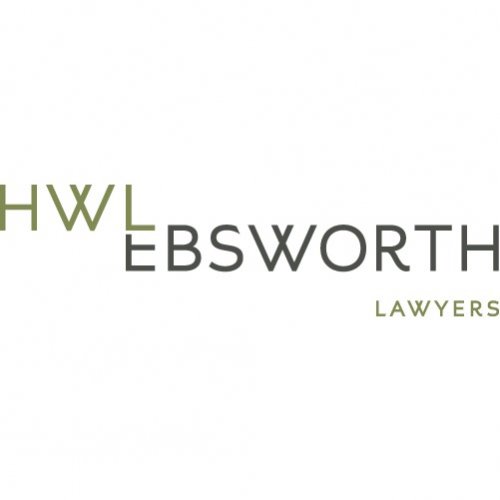Best Business Lawyers in Brisbane
Share your needs with us, get contacted by law firms.
Free. Takes 2 min.
List of the best lawyers in Brisbane, Australia
Australia Business Legal Articles
Browse our 1 legal article about Business in Australia written by expert lawyers.
- How to Start a Business in Australia: A Simple Guide and How a Lawyer Can Help
- Australia is known for its vibrant economy, supportive government policies, and high quality of life, making it an attractive destination for entrepreneurs looking to start a business. Whether you're launching a small local shop or a large-scale enterprise, Australia offers a range of opportunities for growth and success.However, starting a... Read more →
About Business Law in Brisbane, Australia
Brisbane, the capital city of Queensland, Australia, boasts a vibrant business sector. Business law here covers a broad spectrum, from corporate and commercial law to employment and intellectual property law, along with other requisite areas that impact the operation of a business. As a flourishing business hub, Brisbane requires its businesses to comply with federal as well as state-specific laws. Therefore, understanding these laws is crucial for smooth business operations.
Why You May Need a Lawyer
Legal advice on business matters can help individuals in various situations. If you are considering starting a new business, a lawyer can guide you through the relevant legal frameworks and regulatory compliance. Existing businesses may require legal assistance for matters such as contract drafting and negotiations, dispute resolution, real estate transactions, tax planning, employment issues, mergers and acquisitions, and intellectual property issues. Additionally, if a business faces legal actions or penalties, having a lawyer is crucial to navigate the legal intricacies and defend the business interests effectively.
Local Laws Overview
Business law in Brisbane falls under both federal and state legislation. Key areas include the Business Names Registration Act 2011, the Australian Consumer Law that details consumer rights and obligations for businesses, and the Competition and Consumer Act 2010 that governs business competition in the market. Locally, the Queensland Building and Construction Commission Act 1991 and the Retail Shop Leases Act 1994 have specific relevance for certain types of businesses. Employment laws cover fair work standards, while tax laws dictate obligations under the Australian Taxation Office (ATO).
Frequently Asked Questions
1. Do I need a Business Number in Brisbane?
Yes, every business in Australia, including Brisbane, is required to have an Australian Business Number (ABN).
2. How can I protect my business idea?
Business ideas can be protected using intellectual property laws. You may consider options like patents, copyrights, designs, or trademarks.
3. What is the process of starting a business in Brisbane?
The starting process involves creating a business plan, choosing an appropriate business structure, registering the business and obtaining relevant licenses and permits.
4. How is a business in Brisbane taxed?
Businesses in Brisbane are subject to several types of taxes including income tax, goods and services tax, and payroll tax, among others.
5. What are the working hours laws in Brisbane?
Working hours in Brisbane, like other parts of Australia, are governed by the Fair Work Act. It generally takes into account a 38-hour week as full-time, however, this can be averaged over 26 weeks.
Additional Resources
Available resources for business legal advice in Brisbane include the Queensland Law Society, Australian Business Licence and Information Service (ABLIS), the Australian Taxation Office (ATO), and the Australian Securities and Investments Commission (ASIC). These organizations provide substantial information and guidance for businesses and their legal concerns.
Next Steps
If you require legal assistance, consider hiring a lawyer with expertise in the area of business law relevant to your needs. You can use the Queensland Law Society's search tool to find a solicitor. Remember to prepare for the first meeting by having all relevant documents and a list of questions you wish to ask. Developing a good working relationship with your lawyer can aid in the successful resolution of your business legal matters.
Lawzana helps you find the best lawyers and law firms in Brisbane through a curated and pre-screened list of qualified legal professionals. Our platform offers rankings and detailed profiles of attorneys and law firms, allowing you to compare based on practice areas, including Business, experience, and client feedback.
Each profile includes a description of the firm's areas of practice, client reviews, team members and partners, year of establishment, spoken languages, office locations, contact information, social media presence, and any published articles or resources. Most firms on our platform speak English and are experienced in both local and international legal matters.
Get a quote from top-rated law firms in Brisbane, Australia — quickly, securely, and without unnecessary hassle.
Disclaimer:
The information provided on this page is for general informational purposes only and does not constitute legal advice. While we strive to ensure the accuracy and relevance of the content, legal information may change over time, and interpretations of the law can vary. You should always consult with a qualified legal professional for advice specific to your situation.
We disclaim all liability for actions taken or not taken based on the content of this page. If you believe any information is incorrect or outdated, please contact us, and we will review and update it where appropriate.
Browse business law firms by service in Brisbane, Australia
Brisbane, Australia Attorneys in related practice areas.

















